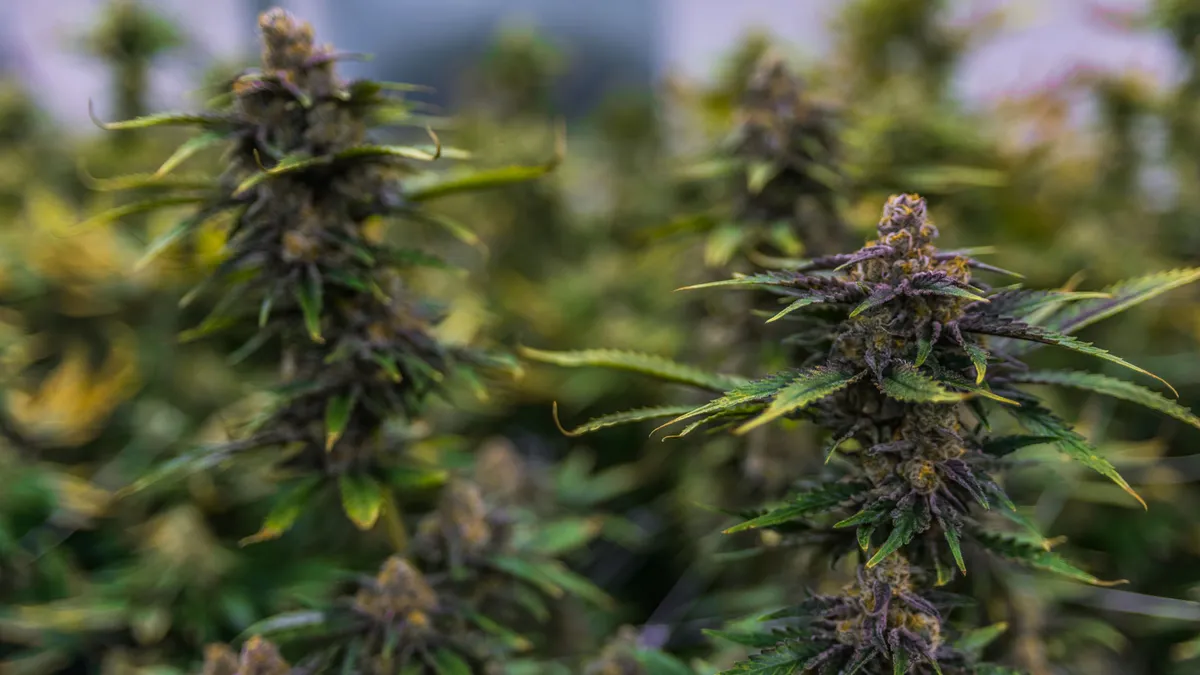Minnesota Craft Brewers Embrace New Cannabis Law, Expanding Opportunities for Low-Dose THC Beverages
LOS ANGELES– Minnesota’s craft brewing industry is abuzz with excitement following the enactment of a new cannabis law in the state. Industry leaders actively sought further regulations regarding THC-infused beverages and expressed their satisfaction with the recently signed legislation by Governor Walz, as reported by local news station KARE.
The new law establishes clear guidelines for the production and sale of low-dose hemp-derived THC drinks, while also expanding the market for these beverages by permitting their sale in liquor stores for the first time.
Bob Galligan of the Minnesota Craft Brewers Guild conveyed his members’ enthusiasm, stating, “It’s not every day you approach legislators and say, ‘Can we get more taxes? Can we get more regulations?’ but at the end of the day, our members wanted to make sure we were doing this in a legitimate and solidified way.” Galligan highlighted the significance of Minnesota’s low-dose, hemp-derived market, emphasizing its revolutionary nature.
This market emerged last year after Minnesota enacted a law allowing the infusion of up to 0.3% THC in food and beverages. The measure surprised several lawmakers, particularly Republicans, who were unaware that they had inadvertently legalized marijuana in the state.
Building upon this foundation, Minnesota legislators took a significant step forward by becoming the 23rd state to legalize recreational cannabis when Governor Walz signed a bill into law in May.
Governor Walz expressed the reasoning behind this decision, stating, “We’ve known for too long that prohibiting the use of cannabis hasn’t worked. By legalizing adult-use cannabis, we’re expanding our economy, creating jobs, and regulating the industry to keep Minnesotans safe.” He emphasized the potential for economic growth, job creation, and the positive impact on communities through the expungement or resentencing of cannabis-related convictions.
Lieutenant Governor Peggy Flanagan added her perspective, stating, “Legalizing adult-use cannabis is about keeping our communities safe, advancing justice for Minnesotans, and investing in a strong economic future.” Flanagan highlighted the disproportionate harm caused to communities of color by cannabis prohibition and emphasized the importance of expunging nonviolent cannabis convictions to remove barriers hindering individuals from fully reintegrating into society.
The new law permits adults aged 21 and older to possess and use cannabis while establishing a regulatory framework for a legal retail market. It also provides a pathway for the expungement of previous marijuana-related convictions.
KARE reports that the new law imposes a 10% state tax on hemp-derived beverages and distinguishes between products derived from hemp and those derived from marijuana. This differentiation ensures compliance with federal regulations, as selling marijuana products would remain federally illegal.
Dan Justesen, owner and operator of Utepils Brewing in Minneapolis, expressed gratitude for the legislation, stating, “The bill recognized what we were doing uniquely in Minnesota and kept it alive, allowing a lot of very small breweries like us to have a foot in the door and stay in the door.” Justesen highlighted the positive consumer response to low-dose THC beverages and the economic considerations that led brewers to embrace this emerging market.
Understanding the cautious approach necessary with a new consumer experience, Justesen explained, “The legal serving size in Minnesota is 5 milligrams, so again, that’s us being a little bit conservative with how it started. The majority of Minnesotans, this was going to be a very new experience for them, or one they may not have had for a few decades. So, we thought giving them something that’s just gonna make them feel happy and not out of it was the way for us to go.”
Minnesota’s craft brewing industry sees the new cannabis law as a gateway to expanded opportunities, aligning with the state’s commitment to responsible regulation and economic growth in the cannabis sector.



































